जम्मू-कश्मीर का राज्य पशु " हंगुल/कश्मीरी बारहसिंगा"
कश्मीरी बारहसिंगे या हंगुल अपने सुंदर सींगों की वजह से बड़े आकर्षक दिखते हैं। इंटरनेशनल यूनियन फॉर कंजर्वेशन ऑफ नेचर [आईयूसीएन] ने इसे विलुप्तप्राय जीवों की श्रेणी में रखा है। कश्मीरी बारहसिंगे यूरोप के लाल हिरन परिवार के सदस्य हैं। इनकी खाल भूरी होती है। इनके शरीर पर हल्के धब्बे भी होते हैं। इनका एक सींग पांच शाखाओं में बंटा होता है। इसमें धब्बों और हल्के दुम पैच के साथ भूरे रंग का एक विशिष्ट कोट रंग होता है, और नर में 16 बिंदुओं तक के प्रभावशाली सींग होते हैं। इनके एक झुंड का नेतृत्व मादा बारहसिंगा करती है।
ये कश्मीर की ऊंची घाटियों और हिमाचल प्रदेश के उत्तरी चंबा के घने जंगलों में पाए जाते हैं। यह ज्यादातर 2 से 18 के समूह में देखे जाते हैं। जम्मू-कश्मीर में मुख्य रूप से श्रीनगर के डचिगम नेशनल पार्क में इन्हें संरक्षित किया गया है। 20वीं शताब्दी की शुरुआत में ये 5 हजार की संख्या में थे, लेकिन विकास के क्रम में इंसानों ने उनके आवास को नष्ट कर दिया। मांस के लिए उनका अंधाधुंध शिकार करना शुरू कर दिया। इन्हीं वजहों से इनकी संख्या में जबर्दस्त कमी आई है। यह पर्णपाती जंगलों, प्राकृतिक घास के मैदानों, चरागाहों और घास के मैदानों को पसंद करता है, और कभी-कभी वृक्ष-रेखा के ऊपर स्थित होता है। यह मुख्य रूप से घास, जड़ी-बूटियाँ, पत्तियाँ, छाल और टहनियाँ खाता है।
कश्मीरी हंगुल, जिसे "कश्मीर स्टैग" के नाम से भी जाना जाता है, मध्य एशियाई लाल हिरण की एक उप-प्रजाति है, जो कश्मीर और आसपास के क्षेत्रों में पाई जाती है। यह लाल हिरण परिवार का एकमात्र जीवित एशियाई सदस्य और जम्मू और कश्मीर का राज्य पशु है।
हंगुल को IUCN रेड लिस्ट द्वारा गंभीर रूप से लुप्तप्राय के रूप में वर्गीकृत किया गया है, क्योंकि निवास स्थान के नुकसान, घरेलू पशुओं द्वारा अत्यधिक चराई, अवैध शिकार, शिकार, बीमारियों और मानव-वन्यजीव संघर्षों के कारण पिछले कुछ वर्षों में इसकी आबादी में भारी गिरावट आई है। 1940 के दशक में, कश्मीर और हिमाचल प्रदेश में 3,000 से 5,000 हंगुल थे, लेकिन 1970 तक यह संख्या घटकर 150 तक रह गई थी। IUCN और WWF के साथ-साथ जम्मू और कश्मीर की राज्य सरकार के संरक्षण प्रयासों के कारण, 1980 तक जनसंख्या बढ़कर 340 से अधिक हो गई। हालाँकि, तब से, जनसंख्या में उतार-चढ़ाव आया है और कम बनी हुई है। 2019 की जनगणना के अनुसार, जंगल में केवल 237 हंगुल बचे थे।
लाल हिरण ज़्यादातर यूरोप और अन्य ठन्डे इलाक़ों में ही मिलने वाले जानवर होते हैं। भारतीय उपमहाद्वीप में हंगुल, लाल हिरण की आख़िरी बची हुई नस्ल है।
English Translate
State animal of Jammu and Kashmir is "Hangul/Kashmiri Barasingha"
Kashmiri reindeer or Hangul look very attractive because of their beautiful horns. The International Union for Conservation of Nature [IUCN] has placed it in the category of endangered species. Kashmir reindeer are members of the red deer family of Europe. Their skin is brown. There are also light spots on their body. One of their horns is divided into five branches. It has a distinctive coat color of brown with spots and a light rump patch, and the male has impressive horns of up to 16 points. A herd is led by a female reindeer.
They are found in the high valleys of Kashmir and the dense forests of North Chamba in Himachal Pradesh. They are mostly seen in groups of 2 to 18. They have been preserved mainly in Dachigam National Park in Srinagar in Jammu and Kashmir. At the beginning of the 20th century, there were 5 thousand of them, but in the course of development, humans destroyed their habitat. Started hunting them indiscriminately for meat. Due to these reasons their numbers have declined tremendously. It prefers deciduous forests, natural grasslands, pastures and meadows, and sometimes above the tree-line. It mainly eats grass, herbs, leaves, bark and twigs.
The Kashmir Hangul, also known as the "Kashmir Stag", is a subspecies of the Central Asian red deer, found in Kashmir and surrounding areas. It is the only living Asian member of the red deer family and the state animal of Jammu and Kashmir.
The Hangul is classified as Critically Endangered by the IUCN Red List, as its population has declined over the years due to habitat loss, overgrazing by domestic animals, poaching, hunting, diseases and human-wildlife conflicts. There has been a huge decline. In the 1940s, there were 3,000 to 5,000 Hanguls in Kashmir and Himachal Pradesh, but by the 1970s the number had dropped to 150. Due to conservation efforts by IUCN and WWF as well as the state government of Jammu and Kashmir, the population increased to more than 340 by 1980. However, since then, the population has fluctuated and remains low. According to the 2019 census, only 237 Hangul were left in the forest.
Red deer are animals found mostly in Europe and other cold areas. Hangul is the last remaining breed of red deer in the Indian subcontinent.
भारतीय राज्य के राजकीय पशुओं की सूची || List of State Animals of India ||
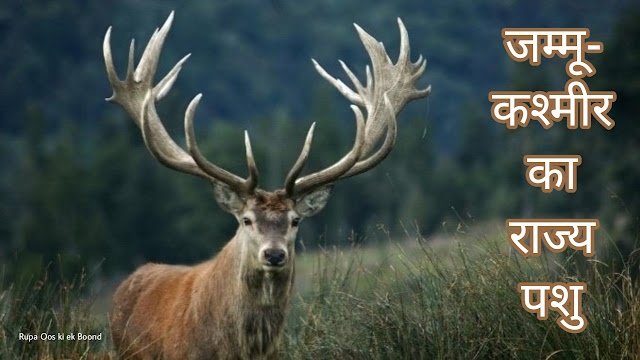
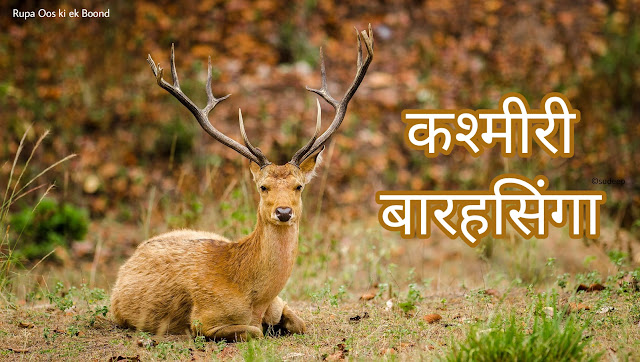
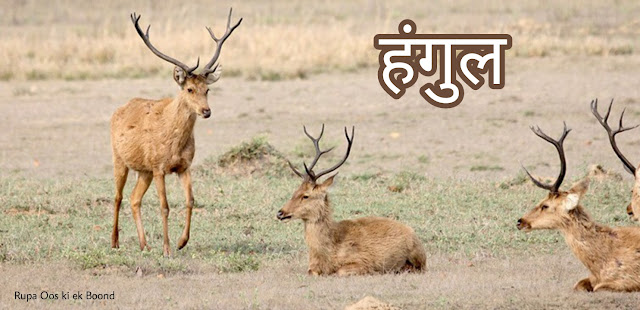
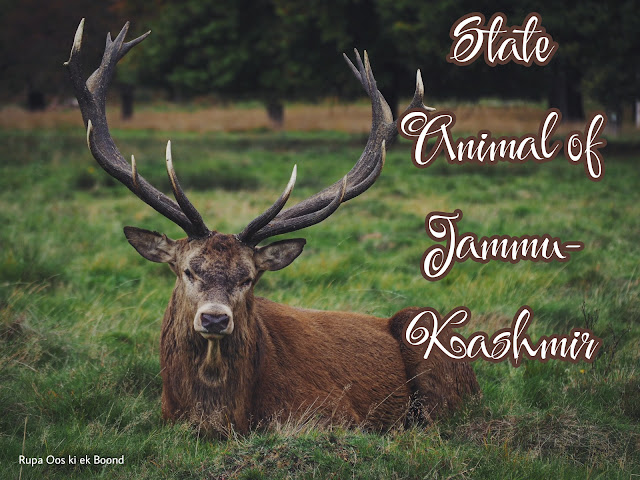
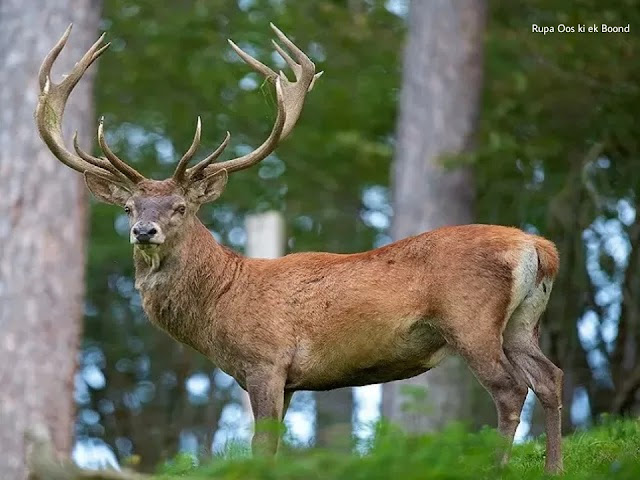
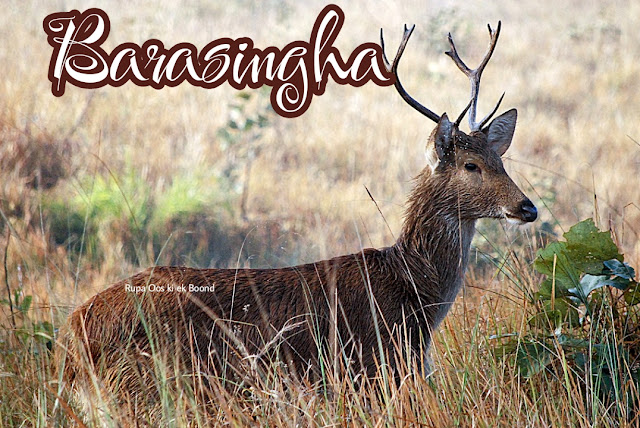

Very special 😊
ReplyDeleteप्रकृति का अमूल्य देन है हंगुल।
ReplyDeleteNice information
ReplyDeleteNice
ReplyDeletenice post 👍🏻
ReplyDelete🙏🙏💐💐शुभरात्रि 🕉️
ReplyDelete🚩🚩जय जय सियाराम 🚩🚩
👍👍👍बहुत बढ़िया जानकारी 🙏
🙏आपका बहुत बहुत धन्यवाद 💐💐
Very Nice Information रूपा जी 👌🏻
ReplyDeleteNice informstion
ReplyDeleteThis is very valuable information.
ReplyDeleteबहुत शानदार 👌👌
ReplyDeleteVery nice. .
ReplyDelete